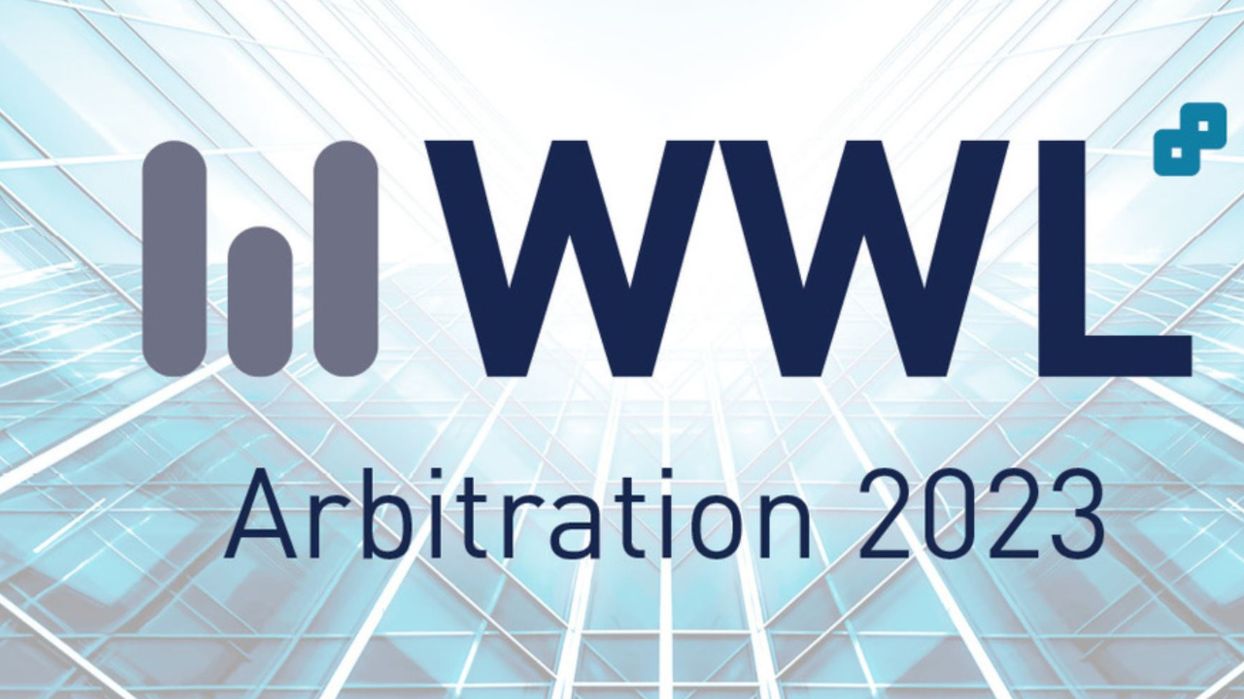In an article first published on Jus Mundi on 15 February 2023 (available here), associates James Coen, Louis Peacock Young and Marco Piccolo explore key changes and issues in the jurisdiction including the Law Commission’s review of the Arbitration Act 1996, Covid-19 and third-party funding among others.
England and Wales continued last year to be a key jurisdiction for international arbitration matters. London remains a preferred seat for many arbitrating parties and the courts continue to support this consensual process.
The Arbitration Act 1996 – the Law Commission’s review
The Law Commission (“Commission”) published its consultation paper on the proposed reform of the Arbitration Act 1996 (the “Act”) in September 2022. The consultation period closed in December 2022, and the Commission is now digesting those responses before reporting its formal recommendations. Needless to say, the arbitration community eagerly awaits the Commission’s final report of recommendations.
Recognising the value of arbitration practice to the United Kingdom’s (UK) economy, the Commission resolved to conduct its review in a manner that seeks to enhance the competitiveness of the UK as a global centre for dispute resolution and strengthen the attractiveness of English law as the law of choice for international commerce. This resolution grounded the Commission’s approach: it aimed to determine whether any amendments could and should be made to the current legal framework of the Act to ensure it is fit for purpose and continues to promote the UK as a leading destination for commercial arbitrations.
The eight specific areas identified by the Commission are:
- Confidentiality.
- Independence of arbitrators and disclosure.
- Discrimination.
- Immunity of arbitrators.
- Summary disposal of issues that lack merit.
- Interim measures ordered by the court in support of arbitral proceedings (section 44 of the Act).
- Jurisdictional challenges against arbitral awards (section 67).
- Appeals on a point of law (section 69).
The Commission’s provisional proposals for change so far appear to be conservative. Where changes are suggested, they are mostly limited to amending existing statutory provisions.
But do all of the Commission’s proposed changes, or lack thereof, ensure the Act remains fit for purpose? Take confidentiality: the Commission proposes that the Act should not codify the law of confidentiality, and the development of that law should be left to the English courts.
This might disappoint practitioners. The Commission recognises that the duty of confidentiality can arise from a number of sources in English law, yet those sources (and their application) can be tricky to navigate in the context of arbitration practice.
Some administering institutions make explicit provisions for confidentiality (for example, the London Court of International Arbitration (LCIA) Rules 2020, Article 30), but others do not. Scotland has an explicit confidentiality regime for arbitration (see Rule 26 of the Arbitration (Scotland) Act 2010), so there is nothing in principle that should prevent its neighbouring jurisdiction from adopting an express regime.
Arguably, a statutory expression of what confidentiality is and is not in an arbitration context could be helpful to parties and their global advisors. It would give them certainty and clarity and might mitigate the possibility or frequency of confidentiality disputes arising during arbitration proceedings. Instead, the Commission has so far ruled out such a change.
But in a world where data volumes in all their formats are expanding and corporates are increasingly concerned that their confidential information remains so, is this approach the better one? Will parties continue to choose to arbitrate under the auspices of the Act if an alternative jurisdiction exists that protects their documents and data as confidential in a simpler and codified manner?
Arbitration in the UK and the English courts
It appears that arbitration volumes might be reverting to pre-Covid levels in the UK, with the LCIA receiving 377 referrals in 2021 (down from 440 in 2020).
The LCIA’s Annual Casework Report confirms that the UK continues to be an enticing global centre for arbitration: a large majority of parties in LCIA arbitrations last year were from foreign jurisdictions (85.2%). London remained the most popular seat choice for LCIA arbitrations (85%) and 76% of those parties chose English law as the governing law for their disputes.
Perhaps in reflection of these figures, the amount of arbitration-related litigation appears to be relatively significant: up to a quarter of the Commercial Court’s cases are arbitration-related. Precise statistics for 2022 are not yet available, but the Commercial Court Report 2020-2021 indicates that claims under the Act (specifically, sections 67 (challenges to jurisdiction), 68 (challenges due to serious irregularity), and 69 (appeals on a point of law)) and arbitration-related injunctive proceedings remain relatively popular.
Despite that popularity, the courts remain supportive of arbitration: most recent statistics show a success rate of only 11% for claims made under sections 67, 68 and 69. Parties should therefore continue to be careful when asking the English courts to set aside or disrupt the decision-making process of arbitral tribunals. More likely than not, those claims will (continue to) not succeed, reflecting the jurisdiction’s more-than-two-decade respect for and commitment to arbitration as a consensual dispute resolution process.
If such claims are being considered, practitioners must now bear in mind the relatively new strictures of the CPR’s Practice Direction 57AC (“PD 57AC”). The courts have confirmed that many arbitration claims are caught by the framework for the purposes of PD 57AC, and therefore any factual witness statements must comply with it. This can be a challenge for the types of statements often adduced in arbitration claims before the courts, such as a solicitor’s statement setting out the vital background of the arbitral proceedings underpinning the claim before the court itself, and exhibiting documents in respect of those arbitral proceedings as part of that context.
Statements must now refer to matters of fact in the witness’s personal knowledge, listing in full all documents referred to. They should not quote at length from any of those listed documents, nor should they set out any kind of narrative derived from them, avoiding any argumentation. This is a significant departure from practitioners’ previous approach to statements supporting arbitration claims, and represents the new world in which arbitration-related litigation exists in the English jurisdiction. Practitioners (English-qualified or otherwise) should proceed with caution.
Covid-19: remember this?
Earlier in the year, with the implementation of the Commercial Rent (Coronavirus) Act 2022, the general moratorium on forfeiture of commercial premises due to non-payment of rent ended, just over two years since it was implemented at the start of the Covid-19 pandemic. This legislation introduced an arbitration scheme whereby parties would have six months to apply for arbitration (with landlords prevented from exercising their usual remedies in respect of so-called ‘Protected Arrears’ during those six months).
Seven ‘Approved Bodies’ are allowed to administer arbitrations under this scheme, which is intended to be a flexible and cost-effective dispute resolution process. Given the continued political sensitivities of the handling of Covid-19 in the jurisdiction, practitioners can expect scrutiny of scheme-related awards as they begin to be published.
Third-party funding: in or out?
The English Courts
In 2022, the jurisdiction remained broadly supportive of third-party funding (“TPF”) in arbitration, and this approach is reflected by the English courts.
Take, for example, the decision of Tenke Fungurume Mining S.A v Katanga Contracting Services S.A.S. The Commercial Court rejected the challenge to an arbitral award made by Tenke Fungurume Mining S.A. (“Tenke”) and found that under section 68 of the Act, it did not constitute a “serious irregularity” to award the costs of TPF to the successful arbitrating party.
An ICC tribunal ordered Tenke to pay the TPF costs incurred by Katanga Contracting Services S.A.S (“Katanga”) for a total amount of US$1.7m. Tenke claimed to the Commercial Court that by awarding Katanga’s funding costs, the tribunal exceeded its powers, which constituted a “serious irregularity” under section 68 of the Act. Tenke argued that “[w]hen the [Act] was passed, no one could reasonably have thought that Parliament intended that either ‘costs of the arbitration’ or the ‘legal or other costs of the parties’ could possibly have encompassed” fees paid to a litigation funder.
The court was not convinced by Tenke’s arguments, finding that “only in those cases where it can be said that what has happened is so far removed from what could reasonably be expected of the arbitral process, will the Court allow an application under section 68 [of the Act]”, and that the decision of the ICC tribunal did not reach this threshold.
The European Union
On 13 September 2022, the European Parliament adopted a “Report with recommendations to the Commission on Responsible private funding of litigation” (the “Proposed Directive”), which primarily aims to provide a regulatory framework in relation to TPF. This is not yet a binding directive for member states of the European Union (“EU”), but it is the first step of the process.
Following Brexit, the Proposed Directive (if implemented) would not take effect in the UK. That said, UK-based funders will be carefully monitoring the progress of the Proposed Directive – particularly as they will likely have ongoing mandates in the EU. Such funders are unlikely to be willing to accept recovery limits and upfront liability for adverse costs (one element of the Proposed Directive). Equally, some might consider the authorisation, monitoring and supervision system suggested by the Proposed Directive will impose excessive burden and costs on them.
If this proposal is adopted, TPF in the UK market (particularly in arbitration cases) could be positively or negatively affected by this new regulation. On the one hand, this regulation could push some parties to choose London as a preferred arbitration seat, to avoid its ambit. On the other, if recovery is capped in the EU to a certain percentage, then UK-based funders might have to adjust their funding schemes to remain competitive in a crowded market.
State immunity in the UK: the Libya case
Finally, an update on a key state immunity case heard by the Commercial Court in February 2022: General Dynamics United Kingdom Ltd v The State of Libya, in which the court discussed the relevance of adjudicative and enforcement state immunity as part of arbitration enforcement proceedings.
On 20 July 2018, Mr Justice Teare made an Order that granted General Dynamics permission to enforce an arbitral award against Libya and dispense with service. He gave Libya two months to apply to set aside the Order. Following an application by Libya in May 2021 to set aside part of the Order, diplomatic service of the Order was effected upon Libya. On 16 August 2021, Libya applied to set aside the remainder of the Order.
Libya’s application primarily relied on the ground that General Dynamics failed to inform the court that Libya had adjudicative and enforcement immunity under the State Immunity Act 1978 (“SIA”). Under section 1(1) of SIA, a state is immune from the jurisdiction of the UK courts (subject to the exceptions described under sections 2-11). Libya argued that even if it was found there was no immunity in respect of adjudicative jurisdiction under the relevant exceptions, there was still immunity in respect of enforcement by execution under section 13.
General Dynamics’ submitted that the orders the court was being asked to make fell under section 101 of the Arbitration Act 1996: “[a] New York Convention award shall be recognised as binding on the persons as between whom it was made, and may accordingly be relied on by those persons by way of defence, set-off or otherwise in any legal proceedings in England and Wales or Northern Ireland”. General Dynamics further argued that there was no defence on the basis of state immunity and that under section 9 of the SIA, “[w]here a State has agreed in writing to submit a dispute which has arisen, or may arise, to arbitration, the State is not immune as respects proceedings in the courts of the UK which relate to the arbitration”. Additionally, General Dynamics submitted that Libya could not enjoy state immunity in respect of the Award because it had already participated in arbitration.
Mr. Justice Butcher found for General Dynamics and refused Libya’s application: Libya had no adjudicative immunity. Further, he agreed that Libya had participated in the arbitration and had done nothing in those proceedings to suggest that it would seek to assert sovereign immunity in the event of an award being made against it.
You can find further information regarding our expertise, experience and team on our International Arbitration page.
If you require assistance from our team, please contact us or alternatively request a call back from one of our lawyers by submitting this form.
Subscribe – In order to receive our news straight to your inbox, subscribe here. Our newsletters are sent no more than once a month.







